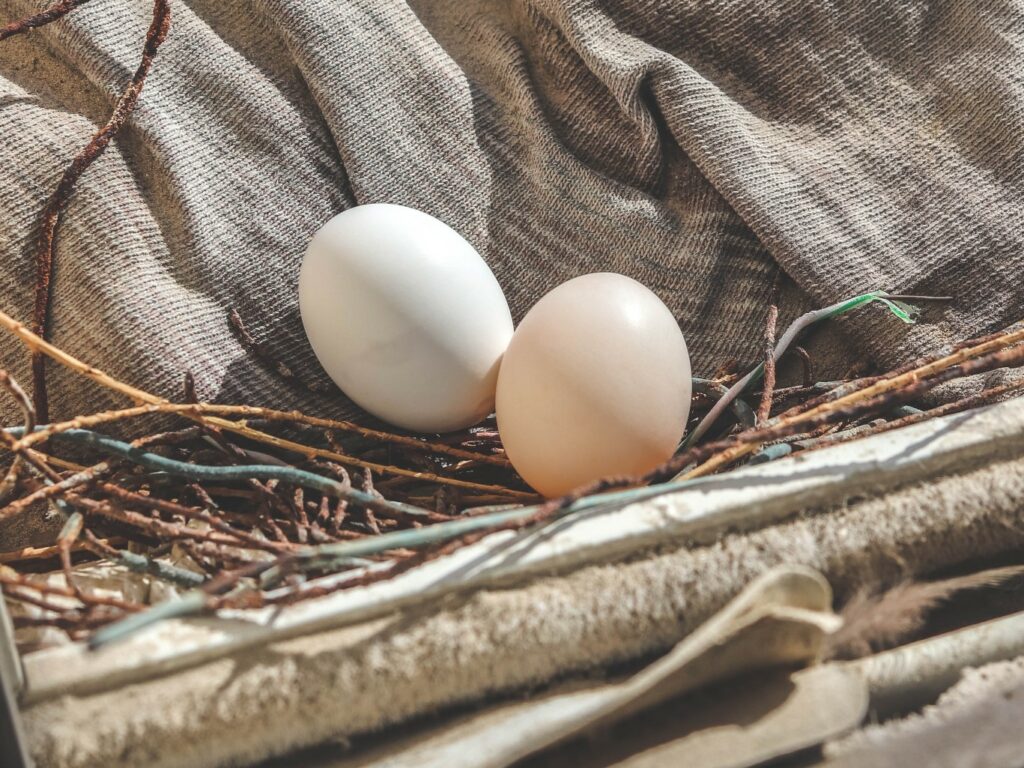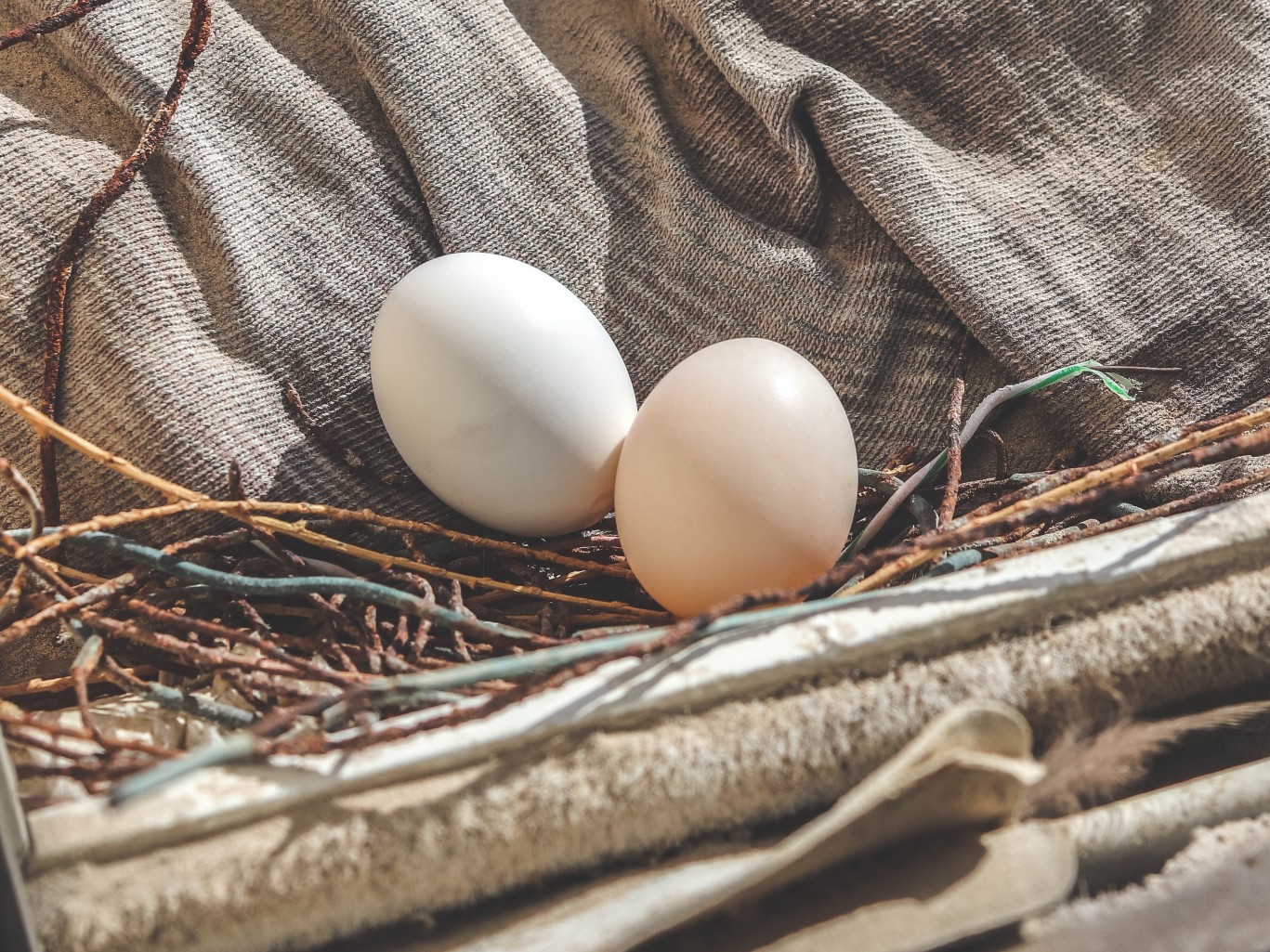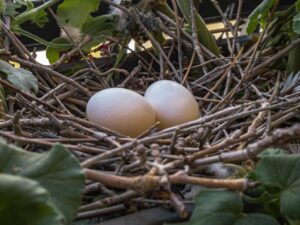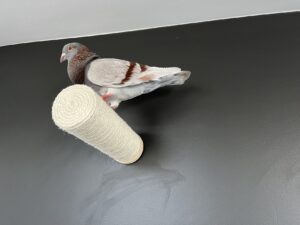As a rescued pigeon owner with hands-on experience and a great passion for these fascinating birds, I know firsthand how complex and varied their reproductive habits can be.
If you’ve ever found yourself wondering “how often do pigeons lay eggs?”, you’re not alone!
In this article, we’ll be taking a deep dive into the ins and outs of pigeon reproduction, from the breeding season to chick development.
Whether you’re a pigeon enthusiast looking to learn more about these amazing birds or simply curious about their unique reproductive habits, this article has something for you.
JUMP TO:

Breeding season and frequency of egg laying
Pigeons are known to breed throughout the year, but the frequency of egg laying can vary depending on the species and the specific environment in which they live.
In general, pigeons tend to breed more often in the spring and summer months, when food and nesting materials are more readily available.
During the breeding season, pigeons will typically lay one or two eggs per clutch, and will often produce multiple clutches over the course of the season.
Here are a few key factors that can affect the frequency of egg laying in pigeons:
- Age and health: Pigeons that are younger and in good health tend to lay eggs more frequently than older or less healthy birds.
- Availability of food and nesting sites: Pigeons that have access to plenty of food and suitable nesting sites are more likely to breed successfully than those that are lacking in these resources.
- External factors: The frequency of egg laying can also be affected by external factors such as the availability of water, the presence of predators, and the overall climate. Pigeons may lay eggs less frequently or abandon their nests altogether if they are exposed to extreme weather conditions or if they are at risk of being attacked by predators.
So how often do pigeon lay eggs?
It is difficult to provide precise numbers for the average frequency of pigeon egg laying as it can vary greatly depending on the specific species and environment.
However, some pigeon species, such as rock doves, may lay eggs more frequently than others, with a breeding season that lasts throughout the year and an average of two to three eggs laid per clutch.
Other pigeon species, such as wood pigeons, may lay eggs less frequently, with a breeding season that lasts from February to September and an average of one egg laid per clutch.
It is important to note that these are just rough estimates and that the actual frequency of egg laying may vary depending on a range of factors mentioned above.
Check this out: What does a baby pigeon look like?
Incubation and chick development
After a pigeon lays an egg, the egg enters the incubation period, during which it is kept warm and protected by one or both of the parents. Pigeon eggs typically incubate for about 17 to 19 days, depending on the species and the specific conditions in which they are being incubated.
During the incubation period, the eggs are kept at a constant temperature and humidity level to ensure optimal development. The parents take turns sitting on the eggs, using their body heat to keep them warm.
Pigeon parents are also known to perform what is known as “pigeon milk,” in which they produce a special secretion from a gland in their crop that is fed to the chicks for the first few days of their lives.
Once the eggs hatch, the chicks, or squabs, are altricial, meaning they are born naked and helpless. The parents continue to care for the chicks, feeding them pigeon milk and small amounts of solid food as they grow. Pigeon chicks grow quickly and are usually ready to fledge, or leave the nest, after about 4 to 6 weeks.
In the wild, pigeon chicks are often vulnerable to predators during this time, so the parents must be vigilant in protecting them. Pigeons are known to be devoted parents and will go to great lengths to keep their young safe, even sacrificing their own lives if necessary.
Check this out: 11 myths about pigeons
Laying eggs outside of the breeding season
While the majority of pigeon egg laying occurs during the breeding season, it is possible for pigeons to lay eggs outside of this time period as well.
This is known as an “extra-pair clutch,” and it can occur for a variety of reasons. For example, a pigeon may lay an extra-pair clutch if its primary mate is unavailable or if it is unable to find a suitable nesting site during the breeding season.
If a pigeon lays an extra-pair clutch, the egg-laying frequency and chick development may differ from the typical breeding season.
For example, the egg-laying frequency may be lower, with only one egg laid per clutch. Additionally, the chick development process may be slower, as the parents may have less time and resources to devote to raising the chick. In some cases, the chick may not survive to fledge due to the less favorable conditions.
Overall, while it is not uncommon for pigeons to lay eggs outside of the breeding season, it is important to note that these extra-pair clutches are generally less successful than those laid during the breeding season.
Check this out: Why do pigeons stand on one leg?
How I rescued my pigeon Gerard
I rescued Gerard, a pigeon, when he was just a hatchling in the frost. His parents and sibling had been killed by predators and he was left alone in the nest. I knew I had to act fast to save him from the same fate.

I took Gerard home and provided him with a safe and nurturing environment. I made sure he had access to a varied and nutritious diet and clean water, and I made sure his living space was comfortable and secure.
Despite being born in the winter and facing many challenges early on in life, Gerard has thrived under my care. He is now a strong and healthy pigeon, and I am proud to have been able to give him the second chance he deserved.
Caring for Gerard has been a rewarding experience, and I am grateful to have been able to help him overcome the many challenges he faced. It is a reminder of the resilience and strength of these fascinating birds, and of the important role, we can play in protecting and caring for them.
Final thoughts
In conclusion, pigeons are fascinating birds with unique reproductive habits. From the breeding season and frequency of egg laying to the incubation and chick development process, there is much to learn about these urban birds.
Understanding the factors that can affect pigeon reproduction, such as the age and health of the birds, the availability of food and nesting sites, and external factors like the availability of water and the presence of predators, can help us better appreciate the complex and varied reproductive habits of these fascinating creatures.
Whether you are a pigeon enthusiast or simply curious about these urban birds, there is much to discover about their unique and fascinating reproductive habits.
Other articles:
- What To Do With Eggs My Pet Pigeon Layed
- How Long Do Pigeon Eggs Take To Hatch?
- How Many Eggs Does A Pigeon Lay?




